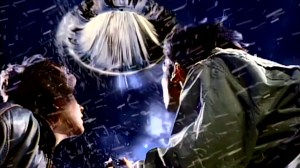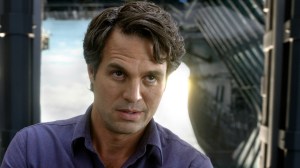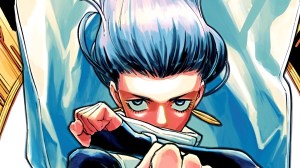Adaptations have long been a staple of the entertainment industry with all forms of media — especially books and comic books — being given new perspective and new life as translated from words on the page to figures on the screen. And for just as long as there have been adaptations of beloved works, there have been critiques of those adaptations, with fans of one version of a story unimpressed or displeased with another, a common complaint being matters of faithfulness to the material. We’ve seen an example of this recently with Prime Video’s The Lord of the Rings: The Rings of Power, with many viewers feeling mixed about the series and its adherence to Tolkien’s work and various creative liberties taken with the beloved source material. It’s a conversation likely to stir up again when AMC launches its adaptation of Anne Rice’s Interview With the Vampire as well, with trailers for that series already indicating major changes from the book to the show. But while there is something to be said for wanting an authentic and carefully detailed adaptation of a beloved work that lines up closely with the source — as well as discussion about adaptation in general — it’s important to remember that there needs to be room for creative liberty as well and that that creative liberty can make the enjoyment of the original so much stronger: adaptations don’t need to be “perfect” to be “good”.
Videos by ComicBook.com
Adaptations are notoriously challenging and, in many cases, it’s nearly impossible to directly adapt a written work or a novel directly to the screen. The same goes for video games and music as well and the reason for that is that each specific medium has its own limitations. There are things writers can do across chapters in books that filmmakers cannot do on screen — and the reverse is also true. Even when creators do manage to take direct details from the source to the adaptation, they don’t always live up to expectation, either, even when done with great diligence. There are technical limitations that come into play there as well. Beyond that, there’s also the role of personal experience that can also be a limiting challenge, both in terms of viewer experience and how the adaptation is created.
A huge part of any creative work is the personal experience and interaction the consumer has with it. The saying “art is in the eye of the beholder” is cliche, but it’s not false. Everyone brings their own perspective to the art they consume. For example, no two people read the same novel and come away with the same thoughts, impressions, or even visual ideas about the novel and the story and themes within it. We all carry with us our personal experiences, biases, and preferences. These things influence our experience with art and media — and that same situation extends to creators who are approaching an adaptation with their own “baggage”, if you will.
To that end, adaptations because they are told from different perspectives allow for people to both experience and explore themes and elements of familiar stories in new ways. At the core of any story or art is its theme, the meaning. Adaptations find ways to make us think about those aspects of stories we love, sometimes in ways we haven’t before and does so in a way that doesn’t negate or remove the previous experience with what exists in the source material. It’s just an expansion. And that’s a critical thing to remember: no adaptation can take away from something that already exists. If you don’t like the film version of your favorite book, your favorite book still exists, ever waiting for you to jump back into the world you love.
And that’s another thing about adaptations, even the ones that maybe don’t hit the mark for everyone: they almost always send people to the source. For some, an adaptation may be the first experience they have with something and, in a desire for more, they seek out the source material. It’s something that the Interview With the Vampire series executive producer Mark Johnson has said he hopes happens with his show and Rice’s novels. For those already familiar, adaptations often send people back to re-appreciate the source — sometimes because they’re unhappy and sometimes because they just want to see the differences. Both situations are wins.
When it comes to adaptations, they don’t have to be “perfect” to be “good”. The protagonist doesn’t have to look exactly as described in the book, the villain doesn’t have to have the same backstory, the adaptation does not have to be a direct copy have value. Ultimately, adaptations are just celebration of something that we love and with all celebrations, enter with an open mind, take what resonates and leave what doesn’t behind.








